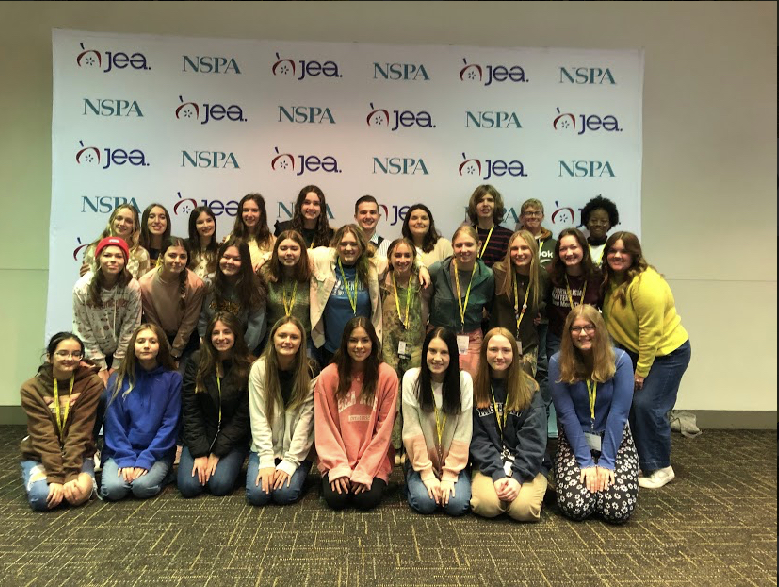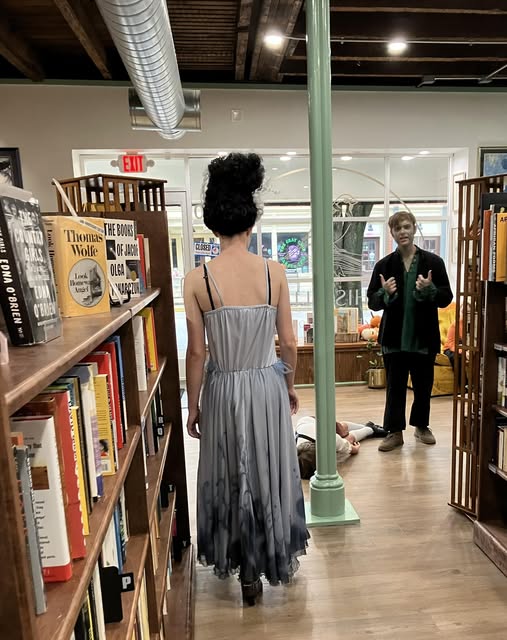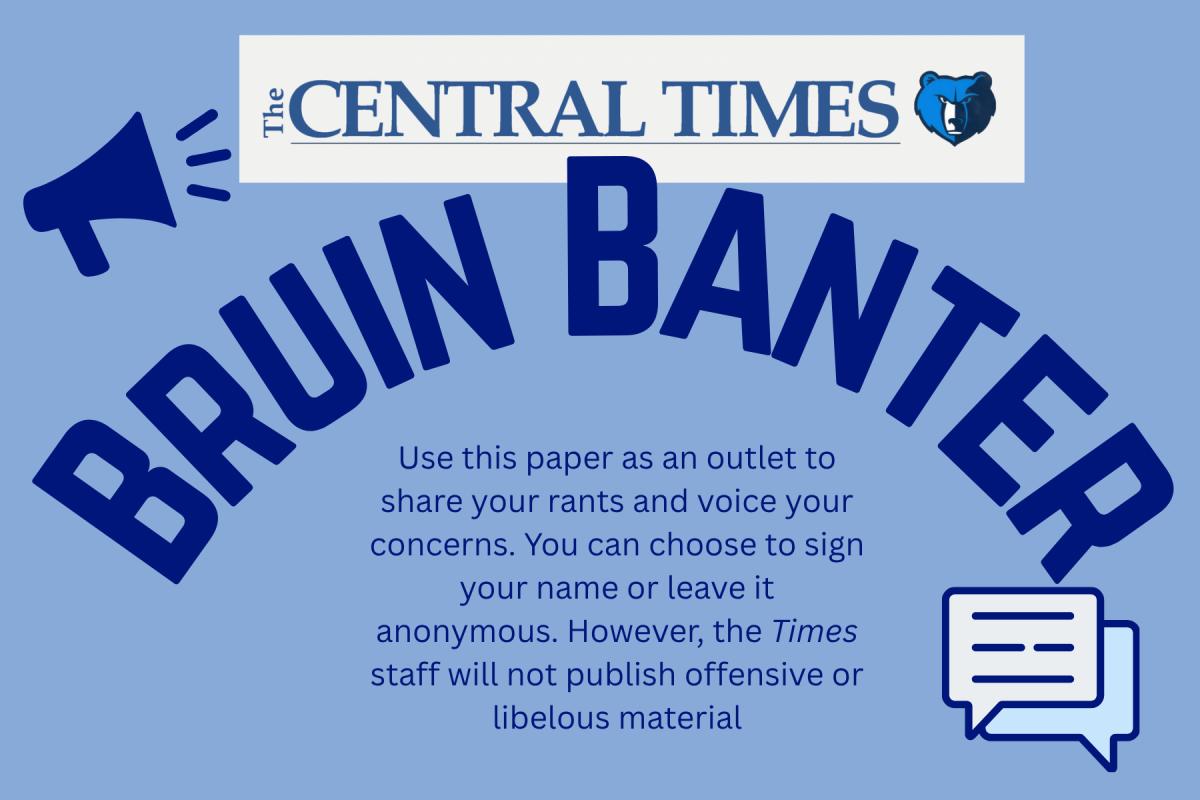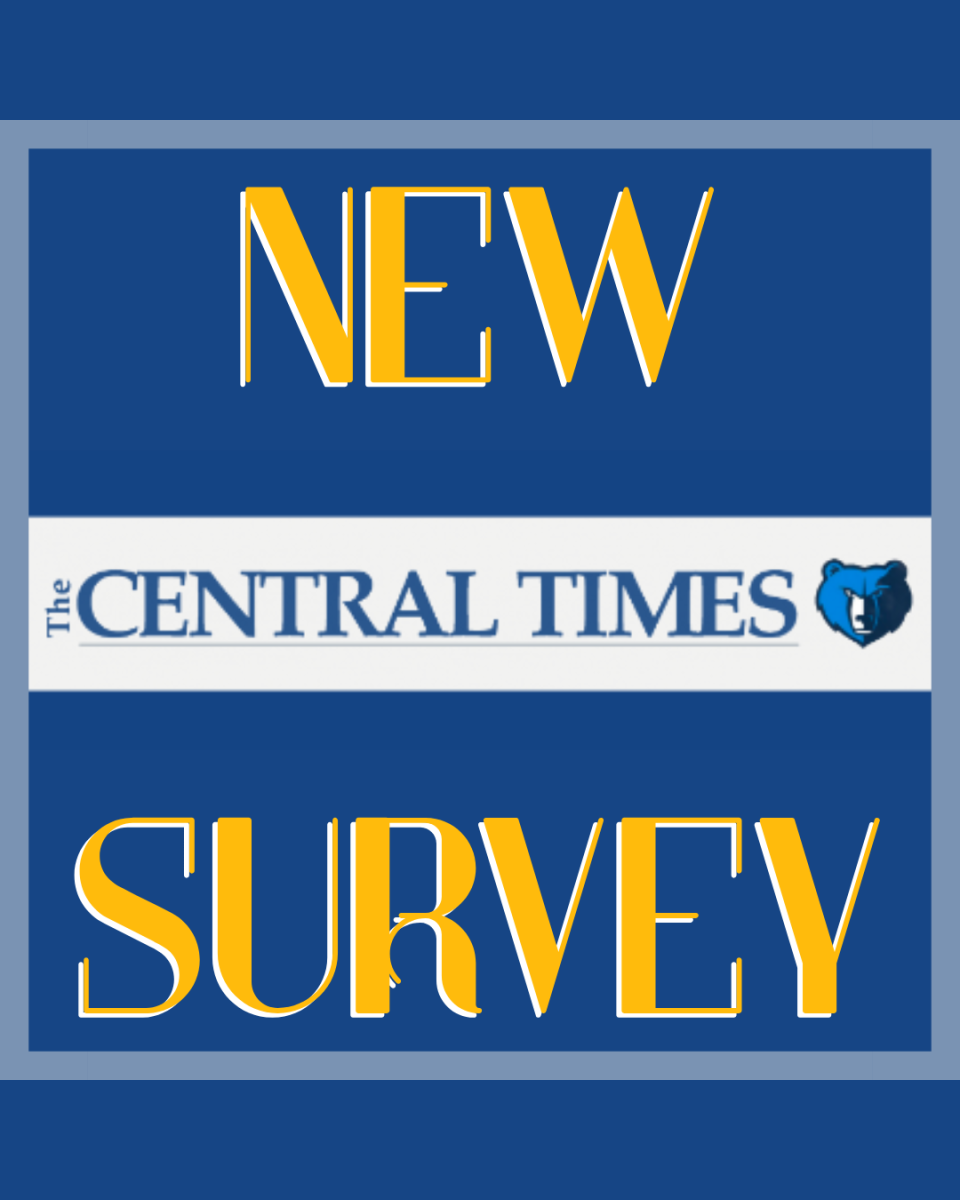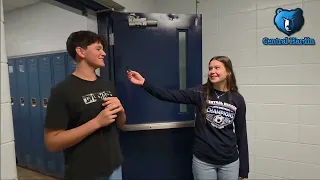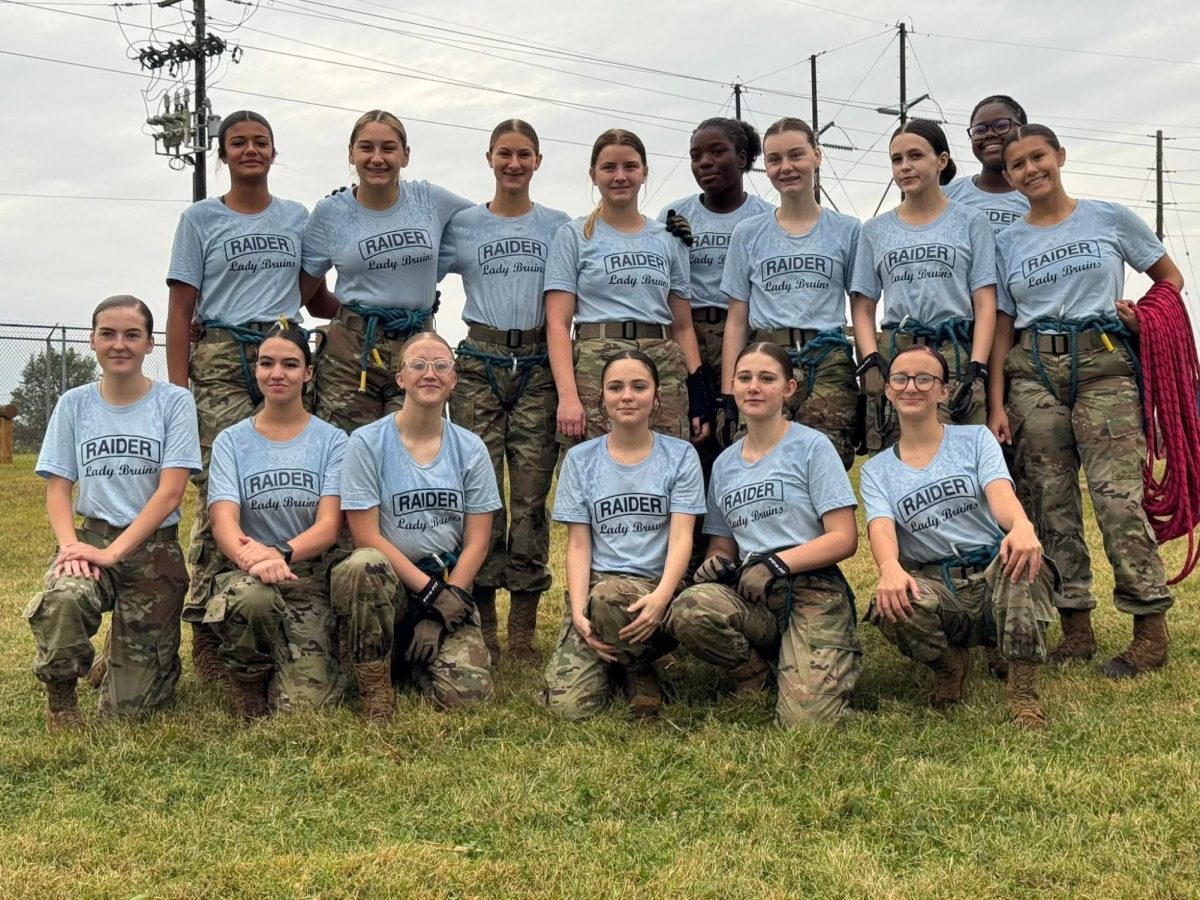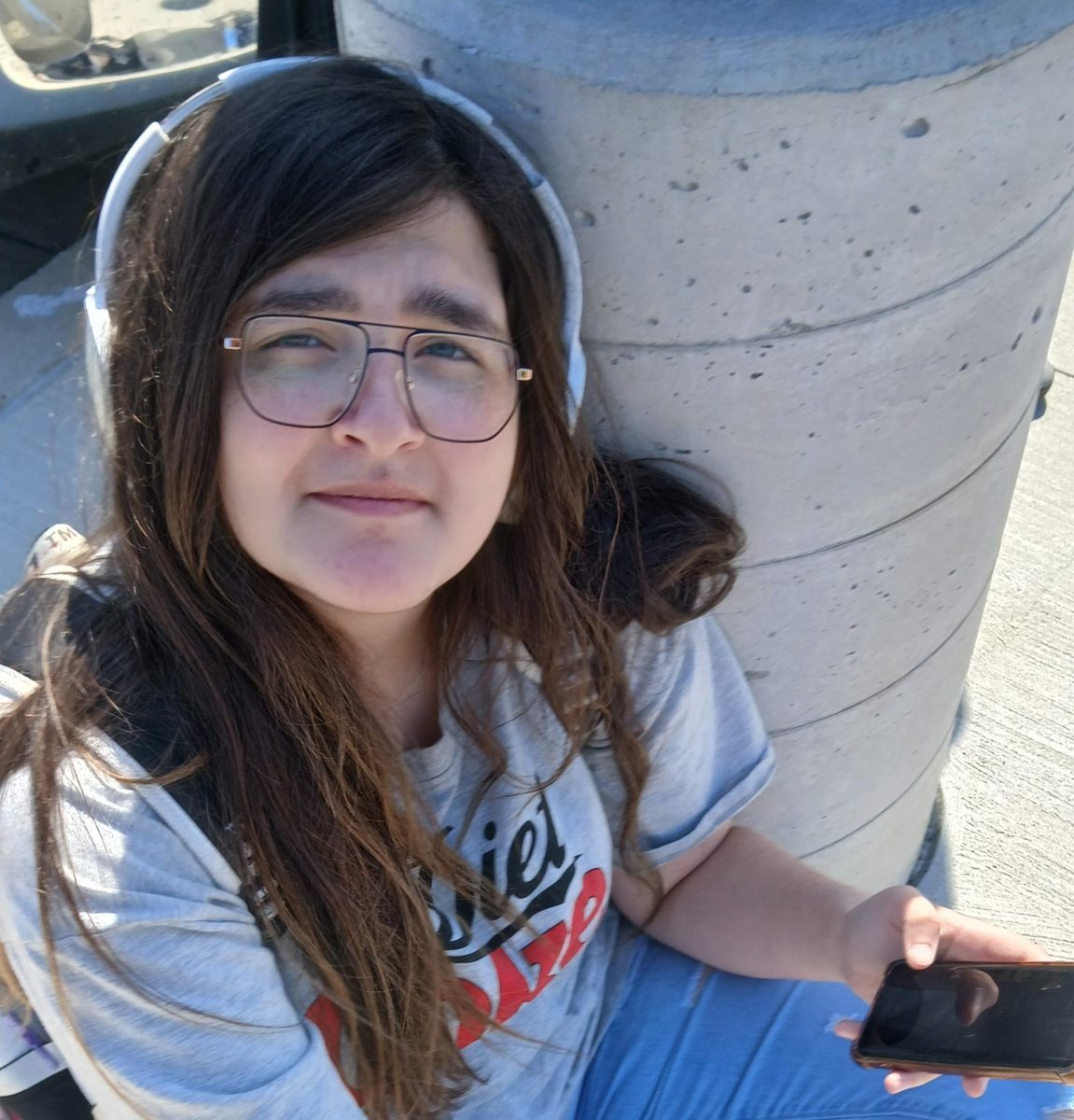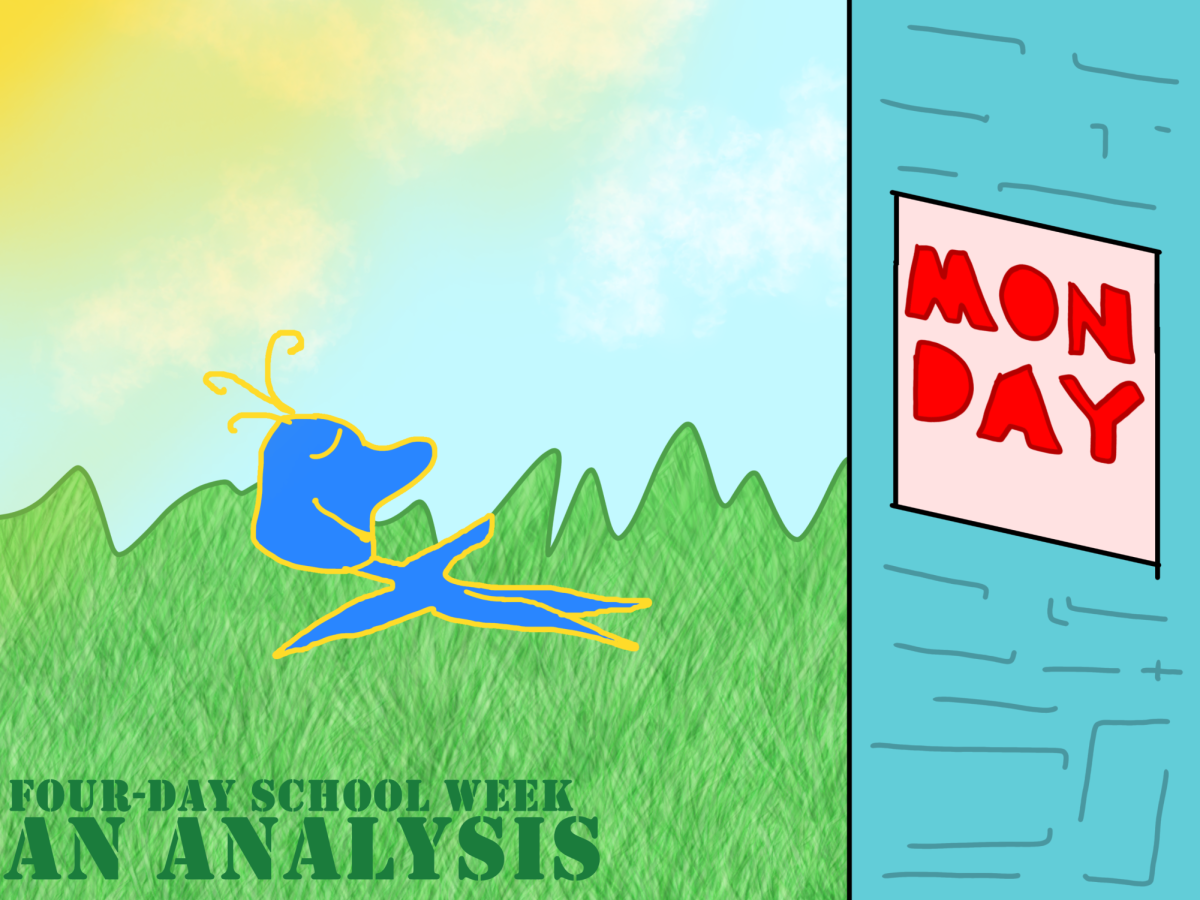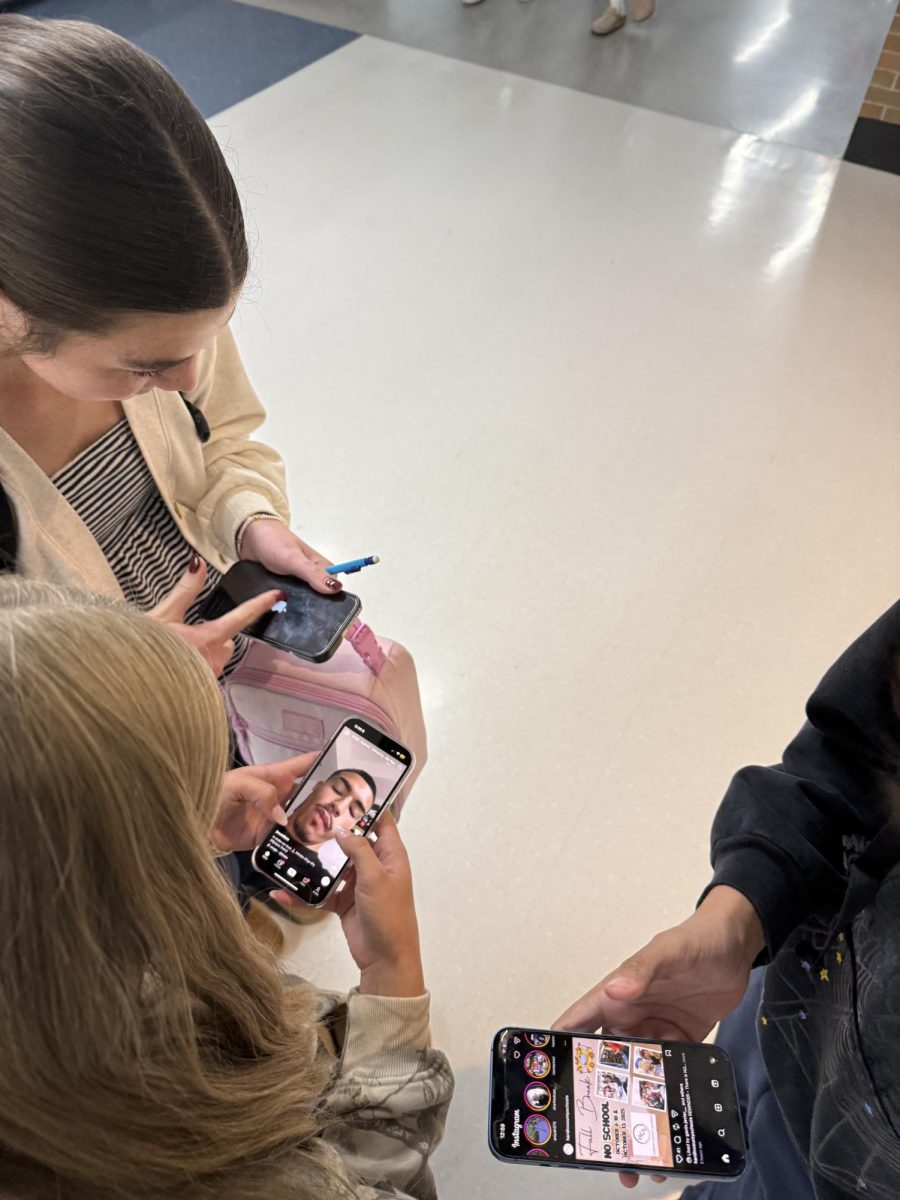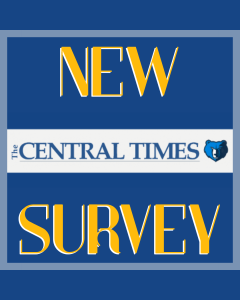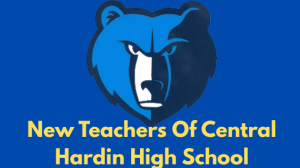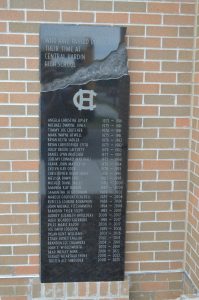JEA/NSPA Fall National High School Journalism Convention: Central’s Experience
Yearbook advisor, Rosalie Batisoni
Central Hardin’s JEA/NSPA Conference attendees
November 18, 2022
After taking a hiatus from hosting national journalism conventions due to the implications of COVID-19, the Journalism Education Association and National Scholastic Press Association hosted The Fall National High School Journalism Convention Nov. 10-13 at the Grand Marriott in St. Louis, Missouri. Having been sponsored for over 40 years, the event attracts more than 5,000 attendees on site. It’s the nation’s largest gathering of high school journalists, advisers, and journalism teachers, offering hundreds of instructional sessions, keynote speakers from national newsmakers, media critiques, on-site media contests, and the announcement of NSPA national winners for Pacemaker and Individual Awards. The overall goal of the conference is for the scholastic journalism community to connect with other staff from across the country and learn valuable tidbits of knowledge through educational sessions led by those in the profession.
The genre of journalism includes broadcast, social media, print publication, online news websites, magazines, and of course, the yearbook. There are multitudes of opportunities within the vocation and the JEA/NSPA convention covered aspects of nearly every one. For a rather small journalism department at Central, made up of the newspaper and yearbook staff, the prospects of attending such a famed event were overwhelming and seemingly unachievable in previous years. That being said, when the opportunity of orchestrating such a trip was supported by principal Tim Isaacs, Susan Sherrard, The Central Times adviser, and Rosalie Batistoni, the yearbook adviser, realized such an idea wasn’t so far-fetched.
On Nov. 10, 28 students, two advisers, and Isaacs set off to St. Louis with their hearts full of hope for an unforgettable experience. Students bundled up in blankets and bonded over their excitement of the next three days. Bags and snacks had been packed, hotel reservations made, and contests entered. All that was left was the arrival, and four hours later, the bus triumphantly concluded its journey.
That first evening was a rush of excitement, nerves, exhaustion, and most amply: hunger. After losing an hour with the transition from Eastern to Central Standard Time and realizing there were yet another few hours of ceremonial induction to sit through, the attendees voiced their perturbation. To their rescue, Isaacs placed an abundant order of pizza and allowed the group to return to the hotel. Within the hour, Central Hardin’s journalists had full bellies and were off to bed with their roommates; it had been a long day.
On the morning of Nov. 11, students rose early to prepare for an inspiring day of sessions, and for some, competition. Starting at 8 a.m., events were available for anyone to sit in on, watch, and participate in. They varied in topic and style, each with their own speaker(s) and focus. Central’s students were given the freedom to attend whichever sessions they wished, depending on their roles or focuses on staff. This aspect of independence was one of the most valued things amongst attendees, for it made the day relaxed and free-flow.
“I found a balance between going to sessions, learning new things, but also enjoying my time there,” senior Mara Green recounted. “Me and a group of friends went and interviewed [other attendees of the conference] and got to meet a bunch of new people and their perspectives. It was two different styles of learning.”
“I didn’t feel tied down to learn one specific thing from one specific person,” senior and The Central Times editor-in-chief Maggie Phelps similarly stated. “I was able to go to many different sessions and learn things that were particular to me, and that benefitted me the most.”
Most students attended three to five sessions that first full day, spending the rest of their time trying out a fun restaurant for lunch, conversing with college journalism representatives present at the conference, and comparing staff experiences with those at the conference. With such a large turnout, there was rarely an empty seat in any session you stepped into. Similarly, those seated to your left or right were likely from a state hundreds of miles away from Elizabethtown. For Central’s journalists, hearing how these foreign high school newspaper and yearbook workforces operated and furthermore, the contrast in lifestyle, was truly an epiphany.
Despite the cultural differences between our small town Kentuckians and those from Los Angeles, California, the sessions offered conveyed tips, tricks, advice, and the inside scoop on journalistic strategies that anyone and everyone could find value in. The ultimate takeaways of the conference varied from each individual and depended on their interests, roles, and personalities.
“The sheer scope of the event was so broad and so all-encompassing that it just felt like it was a learning experience that was going to be very unique,” Sherrard remarked. “Once we got into everything, one of my biggest takeaways was about the importance of acknowledging the diversity of your student body and appealing to everyone’s experience because everyone’s story is important.”
As an adviser, Sherrard explored and sought out sessions that honed in on leadership techniques as well as staff organization. Over the course of her 29-year teaching career, she has witnessed The Central Times embody many various forms. Many years, a staff has had rather uniform demographics, which can greatly affect the content, rhythms, and decisions made. With this in mind, Sherrard realized through a certain session called, “Diversity Audit” the importance of “appealing to those marginalized groups.”
She conveyed the instinctive discomfort that comes with branching out beyond what is habit. As humans, we love our routine, but “it is never too late to get inspired in a new way.”
“Going to this convention has really opened my eyes to seeing how journalism is extremely multifaceted and how there are so many different interworking parts in this field,” Phelps articulated likewise. “Social media, the Internet, and even print journalism play such intricate roles and work together so beautifully to make journalism the amazing field it is.”
For junior and first year member of the yearbook staff, Sofia Stover, the JEA/NSPA convention was key in kick starting her fervor for the subject. Consuming the knowledge and stories of individuals who have made a successful career out of journalism opened her eyes to the infinite possibilities the media holds. Stereotypically, journalism can be perceived as a dying field or one that is simply too competitive to be achieved, but this is not the case. With enough hard work, expertise, and drive, finding your niche area within the vast totality of journalism is more attainable than most may believe. Hearing this from experts in the field who have crafted their art and were willing to share that experience only drove this deeper into the eager audience members, Sofia being one of them.
“I didn’t realize [at first] how big yearbook could be. Some people took it to the max, like New York Times worthy. A lot of those people said they started out doing their high school yearbook and ended up working for…The Boston Globe.”
Speaking of The Boston Globe, one of its editors, John Vitti, was a guest speaker and leader of a variety of sessions at the convention. Vitti spoke about interview etiquette, one of the most vital aspects of writing articles that feature outside individuals or sources. He addressed what questions you should always ask, and some that you should avoid; when to know your place as the interviewer, but also, how to know when to push deeper for the profound, story-worthy answers. A lot goes on behind the scenes of an article, a photograph, or a broadcast, and understanding that process through and through is the message Vitti hoped to convey.
Another powerful point conveyed was how strong of a role competition plays in journalism. Whatever position you have, whether that be an editor, writer, manager, advisor, or photographer, there will always be someone or something you are competing against. Oftentimes, this competitor will be time itself, for the clock stops for nothing and no one, but other times, this may be another individual with a similar responsibility. Learning to work under pressure is the fundamental training of journalists, and this past week, a few Central staff members opted to compete in contests hosted at the convention.
“It was interesting to me to be in a setting where everything was very on-demand and in the moment,” Phelps said in reflection of her competition’s experience. “It’s mentally prepared me for situations like that in the future if I were to ever cover a press conference in my career, so even though I didn’t place, it was still extremely beneficial information that I will take with me forever.”
Beyond the educational aspects of the St. Louis expedition, Isaacs, Sherrard, and Batistoni prioritized destination visitations unique to the area. The group had the opportunity to explore Gateway Arch National Park, even taking the elevator trip 630 ft up to the top. With the weather dipping into the low 30s, spending extended periods of time outdoors was not ideal, but students enjoyed wandering around Delmar Loop, a six-block stretch home to various restaurants, boutiques, specialized shops, and more. Needless to say, Central’s newspaper and yearbook staff members did not come home empty handed. Whether it was a t-shirt, vintage jacket, backpack pin, vinyl, or artsy trinket, nearly everyone found an item to remember their trip by.
Overall, “it was a really multifaceted experience,” junior and photographer Brennen Adams reports.
The JEA/NSPA Fall National Journalism Convention is something to reminisce on forever. It was unprecedented for the Bruin journalism department to take such an extravagant and lengthy trip, but it will hopefully become tradition, for the experience was nothing short of its rendition. Arriving back in Elizabethtown midday on Nov. 13 was a cultural reset for those who attended the conference, and they will never be quite the same. A convention of the national rank is a transformative event and the gratitude towards Isaacs and carrying out the idea is immeasurable. It is unknown when the next journalism adventure will commence, but even if that date is far, the memories made within those three days will last a lifetime.

